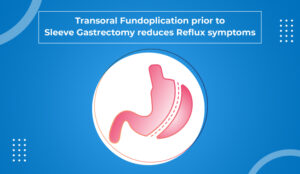
Sleep apnea and how it is associated with Obesity
Sleep apnea refers to a condition in which
58,941 total views, 64 views today
Home » Cardiovascular Diseases and Obesity
Excess body fat in obese individuals is detrimental to health in many ways. Research suggests a strong correlation between obesity and cardiovascular health. Individuals with a body mass index (BMI) above 40 kg/m2 have extremely high risk for cardiovascular diseases, including sudden death. Accumulation of fat, especially around the waist increases the likelihood of developing heart disease and stroke. The percentage of body fat (PBF) is also independently associated with cardiovascular risk factors.
Additionally, obesity can have significant impact on the cholesterol levels. Obese individuals have increased low density lipids (LDL) and triglycerides. Triglycerides and LDL (bad cholesterol) contribute to thickening of arteries, a process known as atherosclerosis that is considered as a leading cause of heart attack or stroke. In contrast, HDL carries bad cholesterol from the bloodstream to the liver and helps to eliminate them from the body, thereby minimizing the risk of heart disease. But obese people have reduced levels of HDL that increases their risk of developing heart disease.
Hypertension is also a common condition associated with obesity. It is deemed to be a major risk factor for cardiovascular diseases. Population studies suggest that about 75% of hypertension cases have obesity as their primary cause. About 50%-60% of obese individuals have mild to moderate hypertension, whereas 5%-10% of obese individuals experience severe hypertension.
The increase in the overall requirement of oxygen and nutrients through blood rises in obese individuals, which is responsible for the increased blood pressure. The demand of blood supply from the heart also increases in obese people due to the blood flow that supplies the extra adipose tissue. An increase in each 10 kg of body weight is associated with an increase in 3.0 mmHg systolic and 2.3 mmHg of diastolic blood pressure. The increased blood pressure can increase the risk of coronary heart disease by 12% and stroke risk by 24% respectively. The demand for increased blood supply can also lead to enlargement of heart chamber and thickening of the heart muscles. Consequently, the performance of the heart may be reduced in terms of its ability to contract and relax normally, leading to heart failure.
Obese individuals carry much higher risk of developing type 2 diabetes, a well-known risk factor for cardiovascular disease. Not all people with obesity develop diabetes, but about 90% of patients with type 2 diabetes are at least overweight. Diabetes patients are two to four times more likely to carry a risk for heart disease. It is also listed as the one of the top seven modifiable risk factors for the prevention of heart disease. Indeed, cardiovascular disease remains as the primary cause of death in diabetes patients.

Sleep apnea refers to a condition in which
58,941 total views, 64 views today

Since the beginning of 20th century, the overall
58,918 total views, 64 views today

New year is the time for new beginnings.
59,618 total views, 64 views today

Weight loss can be tricky business, as it
59,489 total views, 64 views today

According to a recent study, weight loss through
60,388 total views, 64 views today

According to a recent study, preoperative very low
60,389 total views, 64 views today

A recent study conducted on GERD (Gastroesophageal Reflux
60,393 total views, 64 views today

A recent study done to examine the long-term
59,275 total views, 64 views today

Overweight and obesity is a major health concern
29,560 total views, 48 views today

A recent study published in the Journal of
28,750 total views, 48 views today

The findings from a recent study, published in
28,991 total views, 48 views today

The findings of a recent study, published in
29,391 total views, 48 views today

Excess body fat in obese individuals is detrimental to health in many ways. Research suggests a strong correlation between obesity and cardiovascular health. Individuals with a body mass index (BMI) above 40 kg/m2 have extremely high risk for cardiovascular diseases, including sudden death. Accumulation of fat, especially around the waist increases the likelihood of developing heart disease and stroke. The percentage of body fat (PBF) is also independently associated with cardiovascular risk factors.
Additionally, obesity can have significant impact on the cholesterol levels. Obese individuals have increased low density lipids (LDL) and triglycerides. Triglycerides and LDL (bad cholesterol) contribute to thickening of arteries, a process known as atherosclerosis that is considered as a leading cause of heart attack or stroke. In contrast, HDL carries bad cholesterol from the bloodstream to the liver and helps to eliminate them from the body, thereby minimizing the risk of heart disease. But obese people have reduced levels of HDL that increases their risk of developing heart disease.
Hypertension is also a common condition associated with obesity. It is deemed to be a major risk factor for cardiovascular diseases. Population studies suggest that about 75% of hypertension cases have obesity as their primary cause. About 50%-60% of obese individuals have mild to moderate hypertension, whereas 5%-10% of obese individuals experience severe hypertension.
The increase in the overall requirement of oxygen and nutrients through blood rises in obese individuals, which is responsible for the increased blood pressure. The demand of blood supply from the heart also increases in obese people due to the blood flow that supplies the extra adipose tissue. An increase in each 10 kg of body weight is associated with an increase in 3.0 mmHg systolic and 2.3 mmHg of diastolic blood pressure. The increased blood pressure can increase the risk of coronary heart disease by 12% and stroke risk by 24% respectively. The demand for increased blood supply can also lead to enlargement of heart chamber and thickening of the heart muscles. Consequently, the performance of the heart may be reduced in terms of its ability to contract and relax normally, leading to heart failure.
Obese individuals carry much higher risk of developing type 2 diabetes, a well-known risk factor for cardiovascular disease. Not all people with obesity develop diabetes, but about 90% of patients with type 2 diabetes are at least overweight. Diabetes patients are two to four times more likely to carry a risk for heart disease. It is also listed as the one of the top seven modifiable risk factors for the prevention of heart disease. Indeed, cardiovascular disease remains as the primary cause of death in diabetes patients.

Sleep apnea refers to a condition in which breathing stops for a while during sleep
58,942 total views, 65 views today

Since the beginning of 20th century, the overall obesity (overweight) related health conditions and co-morbidities,
58,919 total views, 65 views today

New year is the time for new beginnings. Most of us would have made resolutions
59,619 total views, 65 views today

Weight loss can be tricky business, as it requires a lot of patience to follow
59,490 total views, 65 views today

According to a recent study, weight loss through lifestyle changes on cardiovascular function exhibited beneficial
60,389 total views, 65 views today

According to a recent study, preoperative very low energy diets before non-bariatric surgery were found
60,390 total views, 65 views today

A recent study conducted on GERD (Gastroesophageal Reflux Disease) patients to compare the effect of
60,394 total views, 65 views today

A recent study done to examine the long-term outcomes in patients who underwent laparoscopic sleeve
59,276 total views, 65 views today

Overweight and obesity is a major health concern these days. Losing excess body weight is
29,561 total views, 49 views today

A recent study published in the Journal of Clinical Endocrinology and Metabolism indicated that time-restricted
28,751 total views, 49 views today

The findings from a recent study, published in the journal, Obesity Surgery, suggest that endoscopic
28,992 total views, 49 views today

The findings of a recent study, published in Lancet, suggest that endoscopic sleeve gastroplasty (ESG)
29,392 total views, 49 views today

Dietary modifications, along with regular exercise, play an important role in weight loss, with or
11,933 total views, 15 views today

The findings of a recent study, published in the Chinese journal of Preventive Medicine, on
5,753 total views, 3 views today

A study published in Science Daily stated that a new self-guided diet program with a
5,849 total views, 3 views today